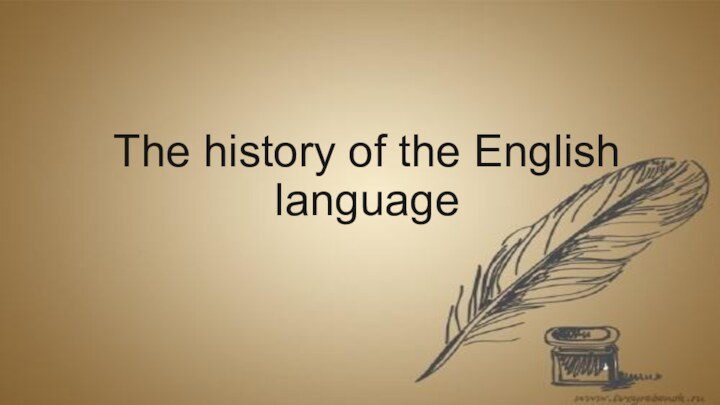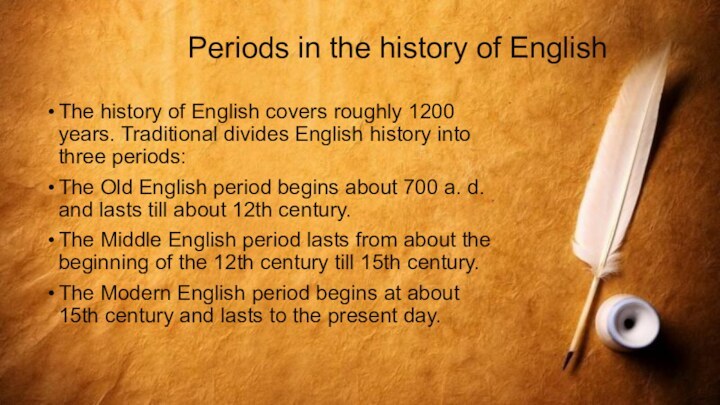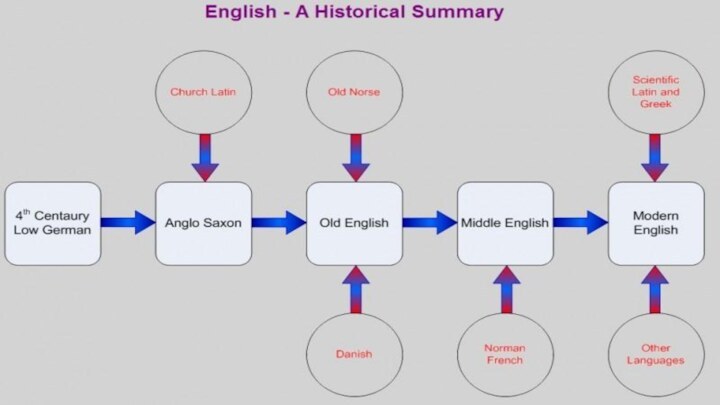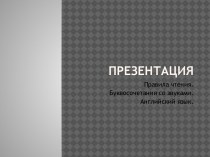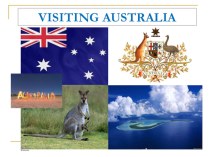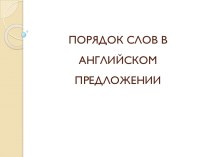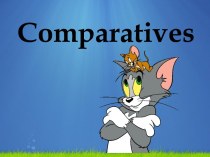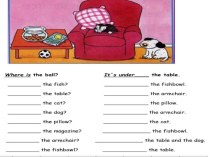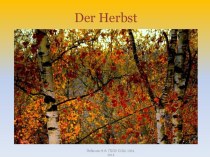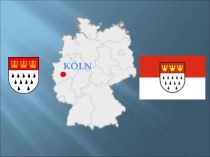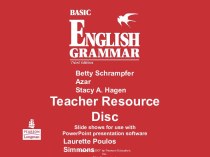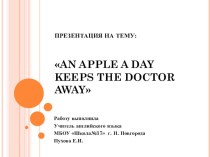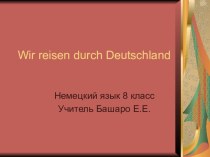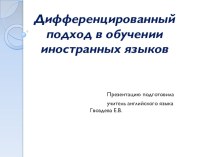Periods in the history of English
The history of
English covers roughly 1200 years. Traditional divides English history into three periods:
The Old English period begins about 700 a. d. and lasts till about 12th century.
The Middle English period lasts from about the beginning of the 12th century till 15th century.
The Modern English period begins at about 15th century and lasts to the present day.
Слайд 5
The Prehistory of English
The ultimate origins of English
lie in Indo-European , a family of languages consisting
of most of the languages of Europe as well as those of Iran, the Indian subcontinent, and other parts of Asia. Because little is known about ancient Indo-European we'll begin our survey in Britain in the first century AD
Слайд 6
Celts
•5th-6th centuries Germanic peoples speaking West Germanic
dialects settle most of Britain.
•Celts retreat to distant areas
of Britain: Ireland, Scotland, Wales. The Celtic influence on English survives for the most part only in place names - London, Dover, Avon, York.
Romans
43 AD
The Romans invade Britain, beginning 400 AD years of control over much of the island. Early 5th century with the collapse of the empire, Romans withdraw from Britain. So many words have Latin roots in modern English. For example, word “castra” (camp) meets in words -Lancaster, Manchester, Leicester. Many of the most commonly used words in modern English have Latin roots, for example: words street, wall, wine, pear, pepper.
Слайд 8
500-1100: The Old English
(or Anglo-Saxon) Period
•West Germanic invaders from Jutland and southern
Denmark: the Angles Saxons, and Jutes, began to settle in the British Isles in the fifth and sixth centuries AD.
•About half of the most commonly used words in modern English have Old English roots. Words like be , water , and strong , for example, derive from Old English roots.
Слайд 9
Vikings
•The Vikings attack Wessex in 878, and
the Saxon king, Alfred (of burning the cakes fame)
had to flee to the Somerset marshes.
•English borrowed approximately two thousand lexical items from Old Norse, including anger , bag, both, hit, law, leg, same, skill, sky, take, and many others, possibly even including the pronoun they.
Слайд 10
The Norman Conquest and Middle English (1100-1500)
William the
Conqueror, the Duke of Normandy, invaded and conquered England
and the Anglo-Saxons in 1066 AD. The influence of the Normans can be illustrated by looking at two words, beef and cow. Many legal terms, such as indict, jury.
Слайд 11
Early Modern English (1500-1800)
The next wave of
innovation in English came with the Renaissance. Words Shakespeare
bequeathed to the language include "critical," "leapfrog," "majestic," "dwindle," and "pedant”. The first factor was the Great Vowel Shift. This was a change in pronunciation that began around 1400. The last major factor in the development of Modern English was the advent of the printing press. Spelling and grammar became fixed, and the first English dictionary was published in 1604.
Слайд 12
Late-Modern English (1800-Present)
The principal distinction between early- and
late-modern English is vocabulary. The industrial and scientific revolutions
created a need for neologisms to describe the new creations and discoveries. Words like oxygen, protein, nuclear, vaccine, horsepower, airplane, typewriter and etc.
Слайд 13
Conclusion
English is spreading from northern Europe to the
south and is now firmly entrenched as a second
language in countries such as Sweden, Norway, Netherlands and Denmark. It is believed that over one billion people worldwide are currently learning English.
English has without a doubt become the global language.
